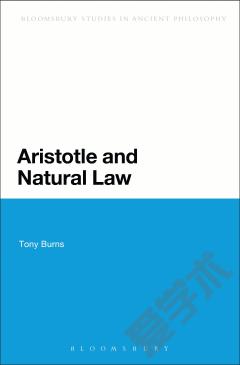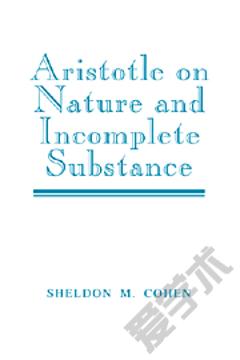Aristotle and Natural Law
The paper presents an interpretation of Aristotle's views on natural justice in the Nicomachean Ethics. It focuses, in particular, on Aristotle's understanding of the relationship which exists between natural justice and political justice, or between natural law and positive law. It is suggested that Aristotle's views on this subject are often misunderstood. It is also suggested that, contrary to what some commentators might think, Aristotle's comments on natural justice are actually central for our understanding of his political thought as a whole. It is argued that Aristotle is, therefore, definitely a natural law theorist of some description. However, Aristotle's natural law theory is unconventional in certain respects. In particular, Aristotle does not consider natural law to be a critical standard by means of which positive law might be evaluated. This places Aristotle outside the mainstream of natural law theory as it has been traditionally understood. Aristotle is not, in this sense at least, the forerunner of the Stoic natural law tradition and of the individualistic, liberal natural law theory of the modern era. He is, rather, the founding father of what might best be described as the conservative natural law tradition, the most well known adherents of which in modern times are Montesquieu, Burke and Hegel.
{{comment.content}}








 京公网安备 11010802027623号
京公网安备 11010802027623号